- Online car hire since 2005
- Popular countries
- Popular regions
- Popular cities
- Popular airports
- Car hire United Kingdom
- Car hire Italy
- Car hire Spain
- Car hire United States
- Car hire Portugal
- Car hire Poland
- Car hire France
- Car hire Ireland
- Car hire Greece
- Car hire Switzerland
- Car hire Morocco
- Car hire Cyprus
- Car hire Canada
- Car hire Germany
- Car hire Netherlands
- Car hire Croatia
- Car hire South Africa
- Car hire Austria
- Car hire Australia
- Car hire Slovenia
- Car hire England
- Car hire Scotland
- Car hire Florida
- Car hire Sardinia
- Car hire California
- Car hire Tenerife
- Car hire Sicily
- Car hire Crete
- Car hire Corfu
- Car hire Madeira
- Car hire Lanzarote
- Car hire Malta
- Car hire Majorca
- Car hire Rhodes
- Car hire Fuerteventura
- Car hire Menorca
- Car hire Corsica
- Car hire Wales
- Car hire Gran Canaria
- Car hire Azores
- Car hire London
- Car hire Geneva
- Car hire Malaga
- Car hire Manchester
- Car hire Dublin
- Car hire Orlando
- Car hire Edinburgh
- Car hire Milan
- Car hire Bristol
- Car hire Faro
- Car hire Porto
- Car hire Alicante
- Car hire Lisbon
- Car hire Amsterdam
- Car hire Paphos
- Car hire Gdańsk
- Car hire Bergamo
- Car hire Birmingham
- Car hire Kraków
- Car hire Cagliari
- Car hire London Heathrow Airport
- Car hire Dublin Airport
- Car hire Geneva Airport (Switzerland)
- Car hire Malaga Airport
- Car hire Manchester Airport
- Car hire Orlando International Airport
- Car hire London Gatwick Airport
- Car hire Edinburgh Airport
- Car hire Bristol Airport
- Car hire Faro Airport
- Car hire Porto Airport
- Car hire Alicante Airport
- Car hire Lisbon Airport
- Car hire Milan Malpensa Airport
- Car hire Paphos Airport
- Car hire Gdańsk Airport
- Car hire Bergamo Airport
- Car hire Birmingham Airport
- Car hire Kraków Balice Airport
- Car hire London Luton Airport
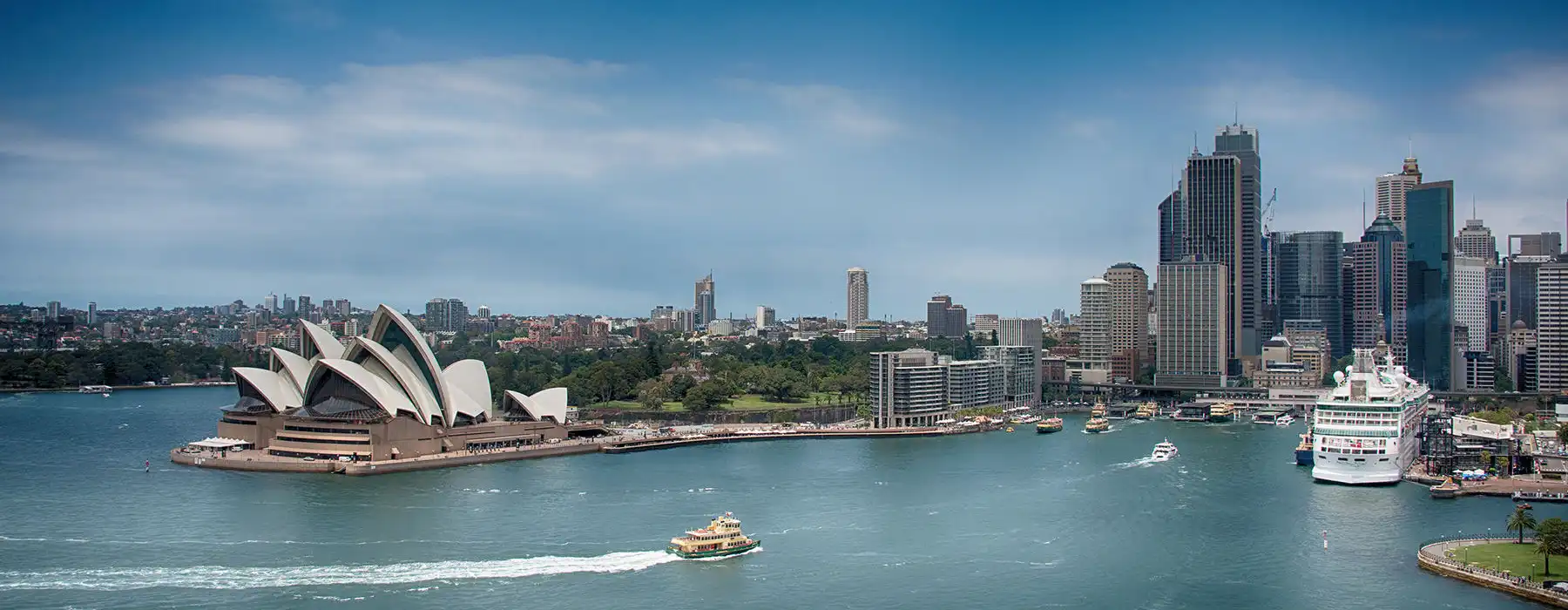
Car hire Australia
Save time and money. We compare the offers of car rental companies in Australia on your behalf.
- Free cancellation Up to 48 hours prior to the scheduled pick-up time
- Best price guarantee Have you found a better price? Let us know and we will make you a better offer.
- 24000+ pick-up locations Locations around the world

Car hire Australia
EasyTerra Car Hire Australia is an independent car hire comparison site. Our site compares prices from well-known car rental companies so that, as a customer, you can always reserve your car with us at a competitive rate.
Car rental offers in Australia
Whether you're looking for a small rental car or a station wagon for the entire family, we will always have a suitable vehicle at the lowest price. Below are some examples from our selection in Australia.

-
Simba Car Hire From£ 13 /day

-
Simba Car Hire From£ 13 /day -
Yesaway From£ 18 /day -
Sixt From£ 24 /day

-
Simba Car Hire From£ 18 /day -
Yesaway From£ 21 /day -
Sixt From£ 28 /day

-
Simba Car Hire From£ 20 /day

-
Simba Car Hire From£ 25 /day

-
Alpha Car Hire From£ 32 /day

-
Simba Car Hire From£ 35 /day

-
East Coast Car Rentals From£ 49 /day -
Alamo From£ 76 /day

-
Bargain Car Rentals From£ 10 /day -
Simba Car Hire From£ 11 /day -
Europcar From£ 18 /day

-
Hertz From£ 13 /day -
Europcar From£ 21 /day -
Sixt From£ 27 /day

-
Bargain Car Rentals From£ 14 /day -
East Coast Car Rentals From£ 17 /day -
Simba Car Hire From£ 17 /day

-
Alpha Car Hire From£ 14 /day -
Alamo From£ 19 /day

-
East Coast Car Rentals From£ 16 /day -
Alamo From£ 25 /day -
Enterprise From£ 45 /day

-
Alpha Car Hire From£ 14 /day -
Thrifty From£ 17 /day -
Hertz From£ 19 /day

-
East Coast Car Rentals From£ 15 /day -
Alamo From£ 20 /day -
Enterprise From£ 39 /day

-
Alpha Car Hire From£ 17 /day -
Hertz From£ 29 /day -
Budget From£ 30 /day

-
East Coast Car Rentals From£ 16 /day

-
Bargain Car Rentals From£ 9 /day -
Budget From£ 21 /day -
Europcar From£ 24 /day

-
Bargain Car Rentals From£ 9 /day -
East Coast Car Rentals From£ 15 /day -
Europcar From£ 17 /day

-
Bargain Car Rentals From£ 12 /day -
East Coast Car Rentals From£ 16 /day -
Europcar From£ 27 /day

-
Bargain Car Rentals From£ 10 /day -
Europcar From£ 19 /day

-
Bargain Car Rentals From£ 12 /day -
Europcar From£ 29 /day -
Budget From£ 30 /day

-
Simba Car Hire From£ 14 /day

-
East Coast Car Rentals From£ 17 /day -
Yesaway From£ 20 /day -
Alpha Car Hire From£ 20 /day

-
East Coast Car Rentals From£ 15 /day -
Yesaway From£ 15 /day -
Ace Rental Cars From£ 16 /day

-
East Coast Car Rentals From£ 15 /day -
Hertz From£ 19 /day -
Ace Rental Cars From£ 20 /day

-
Bargain Car Rentals From£ 11 /day

-
Bargain Car Rentals From£ 13 /day

-
Bargain Car Rentals From£ 14 /day

-
Simba Car Hire From£ 14 /day -
Alpha Car Hire From£ 15 /day -
Budget From£ 21 /day

-
Bargain Car Rentals From£ 17 /day

-
Simba Car Hire From£ 14 /day

-
Goldcar From£ 15 /day -
Alpha Car Hire From£ 15 /day -
East Coast Car Rentals From£ 17 /day

-
East Coast Car Rentals From£ 17 /day -
Alamo From£ 27 /day -
Simba Car Hire From£ 27 /day

-
East Coast Car Rentals From£ 17 /day -
Europcar From£ 20 /day -
Alamo From£ 21 /day

-
Bargain Car Rentals From£ 11 /day -
Yesaway From£ 20 /day -
Europcar From£ 27 /day

-
Bargain Car Rentals From£ 11 /day -
Goldcar From£ 16 /day -
Keddy By Europcar From£ 21 /day

-
Bargain Car Rentals From£ 12 /day -
Yesaway From£ 24 /day -
Europcar From£ 31 /day

-
Bargain Car Rentals From£ 12 /day -
Goldcar From£ 20 /day -
East Coast Car Rentals From£ 22 /day

-
Bargain Car Rentals From£ 17 /day

-
East Coast Car Rentals From£ 21 /day

-
Hertz From£ 22 /day -
Ace Rental Cars From£ 26 /day -
Alamo From£ 27 /day

-
Europcar From£ 21 /day -
Keddy By Europcar From£ 21 /day -
East Coast Car Rentals From£ 22 /day

-
Ace Rental Cars From£ 21 /day -
Hertz From£ 21 /day -
Alamo From£ 22 /day

-
Alpha Car Hire From£ 17 /day

-
East Coast Car Rentals From£ 23 /day -
Europcar From£ 28 /day -
Ace Rental Cars From£ 29 /day

-
East Coast Car Rentals From£ 23 /day -
Europcar From£ 25 /day -
Bargain Car Rentals From£ 47 /day

-
East Coast Car Rentals From£ 23 /day

-
East Coast Car Rentals From£ 23 /day

-
East Coast Car Rentals From£ 23 /day -
Ace Rental Cars From£ 23 /day -
Budget From£ 25 /day

-
East Coast Car Rentals From£ 23 /day -
Bargain Car Rentals From£ 29 /day -
Alpha Car Hire From£ 40 /day

-
East Coast Car Rentals From£ 23 /day -
Thrifty From£ 34 /day -
Hertz From£ 41 /day

-
East Coast Car Rentals From£ 27 /day -
Bargain Car Rentals From£ 31 /day -
Alpha Car Hire From£ 65 /day

-
Bargain Car Rentals From£ 25 /day -
East Coast Car Rentals From£ 28 /day -
Europcar From£ 37 /day

-
Bargain Car Rentals From£ 25 /day -
Hertz From£ 51 /day

-
Bargain Car Rentals From£ 26 /day -
Hertz From£ 55 /day

-
Bargain Car Rentals From£ 26 /day -
East Coast Car Rentals From£ 30 /day -
Europcar From£ 37 /day

-
Thrifty From£ 27 /day -
East Coast Car Rentals From£ 28 /day -
Hertz From£ 33 /day

-
Bargain Car Rentals From£ 28 /day

-
East Coast Car Rentals From£ 30 /day -
Thrifty From£ 37 /day -
Hertz From£ 41 /day

-
Europcar From£ 30 /day

-
Bargain Car Rentals From£ 30 /day -
Sixt From£ 45 /day

-
Europcar From£ 26 /day

-
Europcar From£ 27 /day -
Sixt From£ 34 /day -
Routes From£ 42 /day

-
Europcar From£ 30 /day -
Sixt From£ 37 /day

-
Europcar From£ 31 /day

-
Europcar From£ 35 /day

-
Europcar From£ 35 /day

-
Europcar From£ 46 /day

-
Europcar From£ 48 /day

-
Simba Car Hire From£ 25 /day -
Bargain Car Rentals From£ 25 /day -
East Coast Car Rentals From£ 28 /day

-
Bargain Car Rentals From£ 26 /day -
East Coast Car Rentals From£ 30 /day -
Simba Car Hire From£ 35 /day

-
East Coast Car Rentals From£ 39 /day -
Europcar From£ 52 /day -
Bargain Car Rentals From£ 56 /day

-
Hertz From£ 40 /day -
East Coast Car Rentals From£ 49 /day -
Alpha Car Hire From£ 50 /day

-
Hertz From£ 75 /day

-
Hertz From£ 71 /day

-
Sixt From£ 81 /day

-
Sixt From£ 78 /day

-
Hertz From£ 87 /day

-
Hertz From£ 42 /day

-
Hertz From£ 46 /day

-
Dollar Rent a Car From£ 48 /day

-
Dollar Rent a Car From£ 52 /day

-
Bargain Car Rentals From£ 10 /day -
Simba Car Hire From£ 13 /day -
Budget From£ 21 /day

-
Bargain Car Rentals From£ 11 /day -
Goldcar From£ 16 /day -
East Coast Car Rentals From£ 20 /day

-
Bargain Car Rentals From£ 14 /day -
Simba Car Hire From£ 20 /day -
Europcar From£ 29 /day

-
Hertz From£ 13 /day -
Europcar From£ 21 /day -
Sixt From£ 27 /day

-
Simba Car Hire From£ 14 /day -
Goldcar From£ 15 /day -
Alpha Car Hire From£ 15 /day

-
Bargain Car Rentals From£ 15 /day -
Goldcar From£ 20 /day -
East Coast Car Rentals From£ 23 /day

-
Simba Car Hire From£ 14 /day -
Sixt From£ 41 /day

-
Goldcar From£ 19 /day -
Alpha Car Hire From£ 20 /day -
East Coast Car Rentals From£ 20 /day

-
Goldcar From£ 15 /day -
Keddy By Europcar From£ 20 /day -
Europcar From£ 24 /day

-
East Coast Car Rentals From£ 18 /day

-
East Coast Car Rentals From£ 19 /day

-
East Coast Car Rentals From£ 20 /day -
Europcar From£ 24 /day

-
East Coast Car Rentals From£ 20 /day -
Europcar From£ 30 /day

-
East Coast Car Rentals From£ 21 /day

-
Goldcar From£ 22 /day

-
East Coast Car Rentals From£ 22 /day -
Europcar From£ 32 /day

-
East Coast Car Rentals From£ 22 /day -
Europcar From£ 28 /day

-
Europcar From£ 22 /day -
Keddy By Europcar From£ 24 /day -
Routes From£ 39 /day
Popular cities in Australia
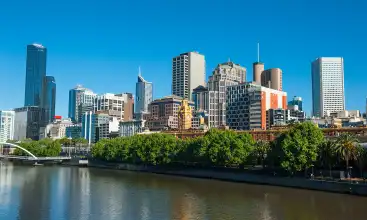
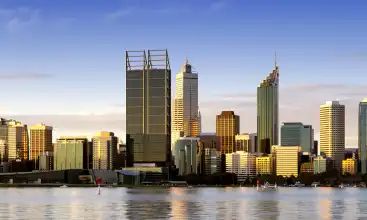
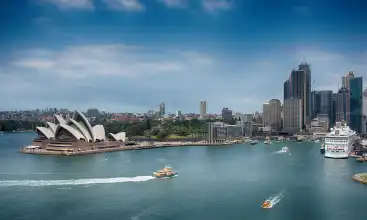

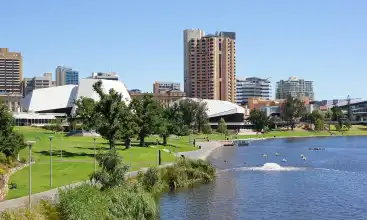
Popular rental locations in Australia
-
Car hire Melbourne Airport - International TerminalFrom
£ 11 /day -
Car hire Perth International AirportFrom
£ 18 /day -
Car hire Sydney International AirportFrom
£ 12 /day -
Car hire Brisbane AirportFrom
£ 10 /day -
Car hire Launceston AirportFrom
£ 23 /day -
Car hire Adelaide AirportFrom
£ 9 /day -
Car hire Cairns AirportFrom
£ 9 /day -
Car hire Coolangatta AirportFrom
£ 10 /day
Useful tips for a well-prepared trip
Which insurance should I choose, and what's the deal with the deposit? Read our articles with useful information and tips to ensure you choose the right rental car for you.
Car rental locations in Australia
EasyTerra Car Hire compares rental car prices at the following destinations

Location information for Australia
Australia is best explored by rental car. EasyTerra Car Hire has over 275 pick-up locations in Australia. This means there is always a pick-up location close to your destination.
Most popular car hire locations in Australia
Introduction
Australia: a country as well as a continent. Australia is a fascinating country with a varied landscape. Breathtaking beaches, beautiful waterfalls, rainforests as well as miles of dry land. Australia is a true paradise for any nature lover. Adventurers can go rafting on wild rivers, surfing on high waves or diving among the magnificent coral reef. The Aborigines are the original inhabitants of the country. Nowadays, less than 2% of the population is Aborigine. Australia is a melting pot of cultures. Most of its inhabitants are of European descent. The first immigrants arrived in Australia more than two hundred years ago. Between 1779 and 1901, Australia was a colony of Great Britain. Its official name is the Commonwealth of Australia.
History
For over 40.000 years, Australia has been inhabited by Aborigines. They are in origin nomadic people from Southeast Asia. They divided into hundreds of tribes that lived throughout the country. Some tribes roamed about, while others settled.
In the Seventeenth Century, curious Europeans went looking for Australia. The Dutch captain Willem Jansz was the first European to set foot on Australian soil. In 1770, the British captain James Cook lay claim to the East of Australia, and 18 years later the country became a colony of Great Britain. Australia was initially used as a penal colony for British prisoners. More and more colonies were set up across the country.
In the mid-Nineteenth Century, gold was discovered in New South Wales and Victoria. From that moment on gold diggers came to Australia from all over the world in the hope of becoming rich. Although the economy boomed, the country was hit by a recession at the end of the century. That is why it was decided to incorporate the six colonies into a federation: the Commonwealth of Australia.
During the First and Second World War, Australia backed its mother country Great Britain. After the Second World War, nearly 2 million Europeans went to Australia. They proved very useful in the country's industry and agriculture.
These days, Australia is an independent and wealthy country with a strong competitive economy. The political situation is stable and the professional population well-educated.
Society and Culture
Australia has about 20 million inhabitants. No less than 70% of the population is of British descent. Australia is one of the most sparsely populated countries in the world. The population is distributed unevenly across the land. Most people live in the Eastern and South-Eastern coastal area, between Melbourne and Brisbane. Queensland is the state where most Aborigines live.
Immigration plays an important role in the culture of Australia. Since 1945, the number of inhabitants has doubled. Many people still emigrate to the wealthy continent. In addition to Great Britain, they often come from Hong Kong and New Zealand.
Despite these various cultures, there does seem to be a coherent Australian culture. Australians are known as hospitable people. They enjoy life and love sports. When you are in Australia, you will surely hear talk of an 'Aussie Barbie'. This is not a doll, but a barbecue! Australians love to barbecue and they often invite tourists to come along and have a bite.
English is the official language of Australia. Australian English has a special accent and there are specific expressions and abbreviations.
About three quarters of the population is Christian. Most Christians belong to the Roman-Catholic and Anglican Church. The other Australians are Buddhist, Muslim, Greek Orthodox, Baptist, etc. Finally, 16% of the Australians are non-religious.
Political Situation
The Commonwealth of Australia, usually referred to as Australia, is a constitutional monarchy. The federal government is formed by a parliament that is elected by the people. The government is led by Prime Minister Kevin Rudd of the Labor Party. Despite the fact that Australia nowadays is independent, the queen of Great Britain is also the queen of Australia; Queen Elizabeth II.
There are three main political parties: Labour Party, Liberal Party and National Party. In addition, there are various small parties. Since 1966 until 2007 the country had been governed by a coalition of the Liberal Party and the National Party.
The six states of Australia each have their own government with a prime minister and a constitution. At a regional level, these governments have a lot of influence.
Economy
Over the last decade, Australia transferred its market economy in an internationally competitive economy. In the 1990's Australia had one of the fastest growing economies in the world, thanks to economic reforms that were implemented in the 1980's.
Australia has developed from a predominantly agricultural country into a country with a rich industry in a very short time. It seems that the worldwide economic downturn in recent years does not effect Australia very much: unemployment levels kept falling and the export brought in important revenues. Australia trades with many different countries. Its main export partners are Japan, China, United States, South Korea and New-Zealand.
The currency of Australia is the Australian dollar. One Australian dollar is worth about € 0.61. If you decide to stay in Australia for a longer period, you may want to open an Australian bank account.
Geography and Climate
Australia has a total land surface of almost 8 million square kilometres. Most of the country (three quarters!) is desert. After Antarctica, Australia is the driest continent on earth. The Australians call the desert 'the outback'. In the centre of the country, in the middle of the outback, there are famous mountains and rocks like Uluru (Ayers Rock) and Kata Tjuta (Mount Olga). In the North-East of Australia there are magnificent rainforests that are home to many animal species. Australia's total coastline is 34218 kilometres long. Australia is in possession of the world's largest coral reef: the Great Barrier Reef.
The two largest cities of Australia are Sydney and Melbourne. They are home to 40% of all Australians. The other major cities are Adelaide, Brisbane, Hobart, Perth, Darwin, Alice Springs and Broome. The capital of Australia is Canberra. Here you will find important government buildings and monuments.
Thanks to its enormous surface, Australia has many climate zones. The northern part has a tropical climate. The outback has a desert climate with hot days and cold nights. The south-east and south-west have a moderate climate. Don't forget to keep the Australian summer and winter in mind! For the Australian summer, you need to visit the country between December and February, while between June and August it is winter in Australia.
Traffic and Infrastructure
Large distances can be covered most quickly by plane. There are many internal flights and all major cities have airports. Most international flights land at Sydney Airport. Other airports include Melbourne Airport, Cairns Airport and Perth Airport.
There is also an extensive bus network. Traveling by bus is fairly cheap. Bus companies like Greyhound, McCafferty's and Premier will take you everywhere and to all the interesting places.
The rail network is less extensive than the bus network. However, traveling by train is comfortable and allows you to enjoy the wonderful landscapes. The main train routes are from Perth to Sydney and Melbourne (via Adelaide), and from Adelaide to Darwin.
The best way to travel is by car. First of all, the car offers more freedom. In addition, it allows you to visit more remote areas. Because of the large distances it is important to make sure you have enough fuel. You need an international driver's license to drive a car in Australia.
Food and drink
The colonial influence of Great Britain can be found in the Australian kitchen. That means it is common to be able to order an English breakfast. Also, Australia is famous for the "barbie". You will not only be able to order meat from the barbecue in restaurants, there are also public barbecues in parking lots and on campsites. Of course, meat lovers need to taste kangaroo and crocodile meat.
Restaurants in Australia are relatively cheap. This has to do with the fact that restaurants allow people to bring their own drinks: "Bring Your Own" or "BYO". This makes eating out more affordable. Giving tips is not common, although it is appreciated. A 10% tip is reasonable.
Australians love to drink, so you can enjoy a beer or wine everywhere. The minimum age for buying and drinking alcohol is 18.
Time zones
Australia has three different time zones: Eastern Standard Time (GMT +10), Central Australian Time (GMT+9,5) and Western Standard Time (GMT+8). Most states have daylight saving times, with the exception of some states, like Queensland.
Accommodation
Australia is geared towards tourism, and you will not have to look very far for a place to sleep. You can choose the luxury offered by hotels, but there are also many campsites. They are inexpensive and give you a chance to enjoy the beautiful environment. Many tourists stay in hostels. There is a great supply and there are various types of rooms. You can share a room with twelve other backpackers or have a room of your own. On the edge of the cities and smaller towns there are motels. Motels are a good choice if you travel by car.
Finally, you can spend the night on a genuine "Aussie farm", and experience the unique atmosphere of the Australian countryside. Often, you even help out on the farm, and learn to sheer sheep or herd cattle. This is an opportunity you do not want to miss!
External Sources
For more information about Australia, we refer you to Google and the following sources:
Practical information
-
CurrencyAustralian dollar
-
Driving directionLeft
-
City speed limit50 km/h
-
Freeway speed limit100 - 130 km/h
-
LanguageEnglish
-
Popular car categorySUV
What most people want to know
The following questions and answers are a selection of the most popular questions. If you do not find the answer to your question, have a look at the Frequently Asked Questions page or contact us.
- Ace Rental Cars
- Avis
- Bargain Car Rentals
- East Coast Car Rentals
- Europcar
- Budget
- Alamo
- Dollar Rent a Car
- Thrifty
- Enterprise
- National Car Rental
- Keddy By Europcar
- Sixt
- Green Motion
- Hertz
- Goldcar
- Red Spot Car Rental
- Yesaway
- Alpha Car Hire
- Simba Car Hire
- Travel Car
- Economy Rent a Car
- Way Rent a Car
- WINDYCAR
- CHEAPA
- ACE Rent-a-car
- Advantage Rent a Car
- Routes
- Apollo Car Rental
- Abbycar
- Drivalia
- Mighty Cars & Campers
- Britz Motorhomes
- Carwiz rent a car
- Flizzr
- Circular car hire
- SurPrice car rentals
- M2000 Car Rental
- NÜ Car Rentals
- Easirent
- FireFly Car Rental



